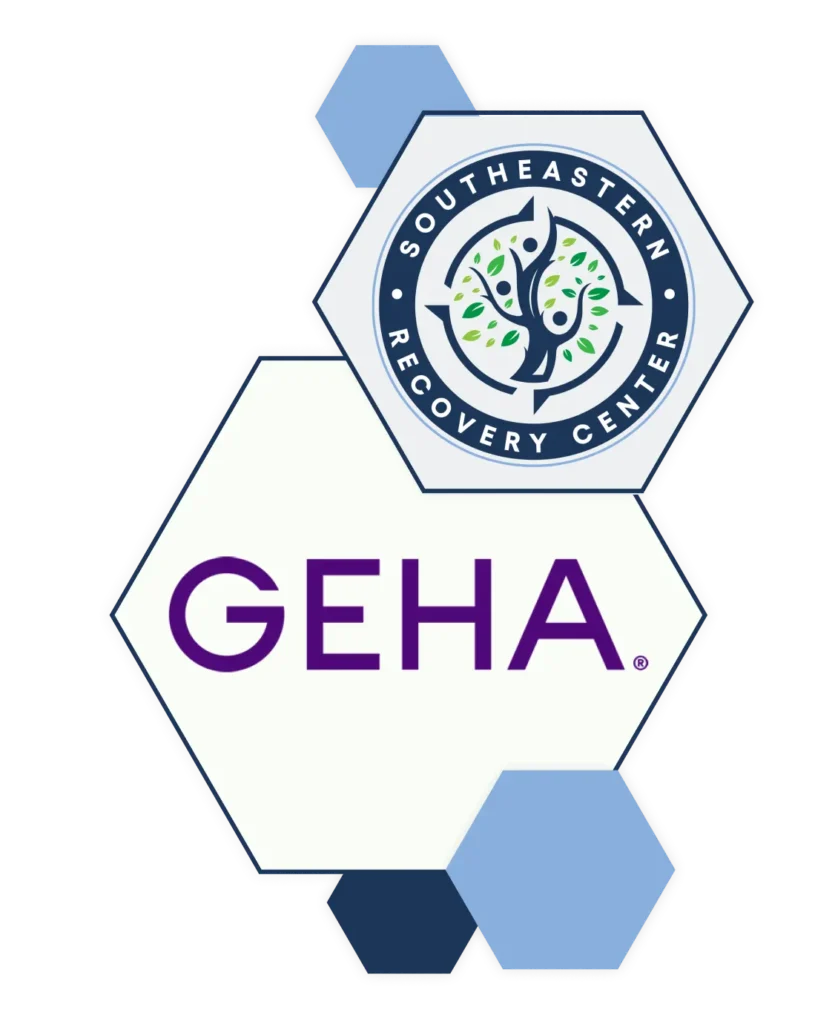Find out if your GEHA Insurance Policy covers addiction treatment in North Carolina – or verify your insurance coverage with Southeastern Recovery Center now.

People face many obstacles when seeking addiction treatment in North Carolina – whether it be overcoming the addiction or the financial burdens that accompany it. Over 1,469,000 adults in North Carolina have a mental condition. This number equals more than three times the number of residents in Raleigh. Of the 452,000 who did not receive treatment for their mental condition, 44.8% of them cited cost as the main reason.
There are several ways to pay for addiction treatment in North Carolina, but the first to consider is using your insurance. When the Affordable Care Act (ACA) was enacted, provisions were included that aimed to improve access to mental health services and insurance coverage for mental health conditions. Addiction, which is categorized under the broad term “substance use disorder,” is included in the diagnostic manual used to classify mental disorders – Diagnostic Manual of Mental Disorders Volume 5 (DSM-5).
GEHA stands for Government Employees Health Association. It’s a not-for-profit provider of health and dental plans for federal employees, retirees, and their families. GEHA offers a range of health insurance options, including fee-for-service, high-deductible health plans, and health maintenance organization plans. It aims to provide comprehensive coverage and competitive rates to meet the needs of government employees and their dependents.
Here is a timeline of the history of GEHA insurance:
GEHA was established as a not-for-profit organization providing health insurance benefits tailored to federal employees. At this time, health insurance coverage was not as widespread as it is today, and many government workers lacked access to comprehensive healthcare plans.
Recognizing the importance of dental care as part of overall health, GEHA expanded its offerings to include dental insurance. This move made GEHA one of the first organizations to provide comprehensive health and dental coverage to federal employees and their families.
GEHA achieved a significant milestone by becoming the first nationwide health plan to offer a comprehensive benefits package designed specifically for federal employees. This package included a range of health services and benefits to meet the needs of government workers across the United States.
GEHA expanded its reach by partnering with the Department of Defense to offer the TRICARE Retiree Dental Program. This program provided dental benefits to military retirees and their families, extending GEHA's services to a broader population of individuals who had served in the armed forces.
GEHA celebrated its 80th anniversary, marking eight decades of providing affordable and comprehensive health and dental insurance options to federal employees, retirees, and their families. Over the years, GEHA had continued to evolve and innovate to meet the changing needs of its members.
GEHA continued to adapt to the evolving healthcare landscape by offering innovative health and wellness programs, telehealth services, and resources to support the health and well-being of its members. Despite the challenges posed by the COVID-19 pandemic, GEHA remained committed to providing its members high-quality insurance coverage and support.
It is important to point out that GEHA insurance plans are only available to federal employees, retirees, and their families – they are not open to the general public. The plans available through GEHA for those who qualify, are:
When reviewing your GEHA insurance policy, it’s important to understand several key terms to ensure you fully grasp your coverage and benefits. Here are some important terms commonly found in GEHA insurance policies:

Premium: The amount you pay for your insurance coverage, typically on a monthly basis.
Deductible: The amount you must pay out of pocket for covered services before your insurance plan starts to pay.
Coinsurance: The percentage of the covered costs you pay after you’ve met your deductible. For example, if your coinsurance is 20%, you would pay 20% of the covered costs, and your insurance would pay the remaining 80%.
Copayment (Copay): A fixed amount you pay for covered services, such as a doctor’s visit or prescription medication.
Out-of-Pocket Maximum (OOPM): The maximum amount you have to pay for covered services in a plan year before your insurance covers 100% of the costs. This includes deductibles, coinsurance, and copayments, but typically excludes premiums.
In-Network Provider: Healthcare providers who have contracted with your insurance company to provide services at a discounted rate. Using in-network providers usually results in lower out-of-pocket costs for you.
Out-of-Network Provider: Healthcare providers who have not contracted with your insurance company. Visiting out-of-network providers may result in higher out-of-pocket costs or may not be covered at all, depending on your plan.
Prior Authorization: Approval required from your insurance company before certain medical services, treatments, or medications are covered. Failure to obtain prior authorization may result in denied coverage.
Formulary: A list of prescription drugs covered by your insurance plan. Drugs may be categorized into different tiers, with different cost-sharing amounts for each tier.
Explanation of Benefits (EOB): A statement from your insurance company explaining how your medical claims were processed, including what services were covered, what the insurance company paid, and any amount you may owe.
Preventive Care: Routine healthcare services, screenings, and vaccinations intended to prevent illness or detect health conditions early when they are most treatable are typically covered at no cost or with minimal cost-sharing under most insurance plans.

As an insurance provider for federal employees, retirees, and their families, GEHA coverage is helping thousands of Americans get the health and mental health care they need—even in North Carolina. When you are looking for addiction treatment, the biggest worry you may have is how the financial part of it works, but don’t worry, Southeastern Recovery Center is here to help.
Our staff is trained in handling your GEHA insurance coverage questions and we even offer online verification of benefits. We try to make the process as easy and as transparent as possible – that way you aren’t held back by the cost of addiction treatment in North Carolina.
If you are ready to get started, give Southeastern Recovery Center a call to get started verifying your GEHA insurance coverage for addiction and mental health treatment.
